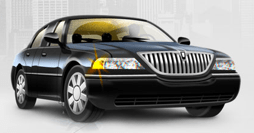Uber has built a business out of being, in the words of its founder and head Travis Kalanick, everyone’s private driver. But while the company is continuing to expand the number of cities where it operates, it is also building out a network to extend beyond vehicles and taxing people around, Kalanick said today.
In a conversation with Alexia on stage at the London Web Summit today, he also laid out the first hints of when Uber plans to launch in London: it will be before this summer, when London is due to host the next Olympics.
“We are definitely going to be here before the Olympics,” he said but also pointed to how important it will be a challenge and not necessarily one that it has faced before. “That will be a cluster for transportation, so we will have to have our game faces on.”
In the world of cars for hire, London, for starters, has a tortuous tangle of streets and an extensive mini-cab network, encompassing not only small operations localized on different neighborhoods but also massive, London-wide fleets of cars that are ordered by phone, text message and often apps. That’s on top of the more famous (and expensive) black cab network. Taken together, that essentially means that Uber will be needing to disrupt not just one but two different, existing car services. (That’s to say nothing about public transport here, which is huge.)
Kalanick notes that while Uber was originally about giving the experiences normally reserved for the “ultra wealthy” to the middle class masses, that paradigm has had to change with subsequent expansions.
“When we roll out in a new city we are mindful of that city…we try to ingratiate ourselves in that city,” he said. “In New York it’s all about class and about being pretty classy, but in Seattle it’s more about grungy. So you do things differently because of that.”
Apart from this, Uber has been pushing, bit by bit, the boundaries of what it is that it offers through its service. In Austin during SXSW last year it introduced pedicabs. This year, it added barbecue delivery to the ordering list (Kalanick today said of the BBQ service: “It’s creative and fun and people loved it. We delivered thousands of sandwiches.”)
At the time, I pondered about how this might be a precursor to a time when Uber used its logistics network for more than just transporting you home from a bar late on a Saturday night — following the model of Amazon rather than Addison Lee. And so I was a little relieved to hear that Kalanick seems to agree.
“I’d like to say that FedEx delivers packages tomorrow, and Uber delivers in five minutes,” he said, but once you are delivering a town car, why not something else? “Some of the things you will see we are building an urban and logistics framework.
“What we like to say is that the vision for Uber is the cross between lifestyle and logistics. We are all used to seeing that on the internet. With the click of a mouse we are bringing that experience to the real world. I can now push a button to get what I want and it is delivered to me.”
